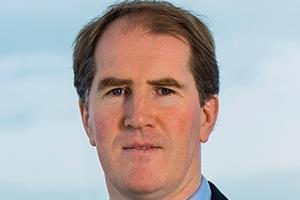A proposal by the liberal party FDP to establish a statutory ”equity” pension in Germany based on the model in place in Sweden has seen some criticism, partly constructive, across the political spectrum.
FDP MPs Johannes Vogel and Christian Dürr have laid out a concept similar to the Swedish premium pension system, where insured employees pay 16% of their salary into a pay-as-you-go pension and 2.5% to defined contribution personal savings accounts in funds for a total of 18.5% pension contributions from earnings.
For Germany, the MPs proposed the introduction of a statutory “equity” pension as part of the first pillar, with insured employees paying 2% of gross wages into a new equity pension pot, akin to the AP7 equity-focused fund, and 16.6% into a pay-as-you-go system out of a total of 18.6% pension contributions from earnings.
Ralf Kapschack, lead for pensions policy at the Social Democratic SDP, told IPE that following the FDP’s proposal, “billions would have to be withdrawn from [statutory] pension insurance, and new debt would fill the gap”. The liability for the equity fund is unclear and the social acceptance of a pension based on equities is “questionable”, he added.
“It would take a long time to fill in the holes in the statutory pension system with proceeds from the equity fund,” Carsten Brodesser, MP for the CDU/CSU group, told IPE.
Brodesser believes that the proposed bridge financing through government’s funds “would throw the statutory pension insurance into even greater problems”, with contributions no longer available for pension pay-outs.
The left wing Die Linke party completely rejects the proposal to pull “over €25bn per year annually from the statutory pension to invest it in equity markets globally,” pension policy lead and MP for Die Linke Matthias Birkwald told IPE.
FDP’s idea lacks risk analysis on global financial markets, currency crises in emerging markets, and the issue of short-term fluctuations for long-term investments if government bonds no longer represent safe investments, Birkwald added.
The MPs, however, acknowledged that FDP’s proposal would add to a necessary, wider discussion on the future of the German pension system.
“With a national equity fund the FDP bring up a very interesting way of what the future of old-age provision in Germany could look like,” Kapschack said, adding that however in his view the payments into the fund should be voluntary.
The FDP highlighted statutory pension issues in its proposal as a “long-term concept” that goes beyond a short-term political campaign prior to the elections, Brodesses said.
He added that the proposal to reinforce “equity culture” is welcome, while the idea to transform the pay-as-you-go system into a partially funding system “is not new and, because of the demographic development, it should at least be discussed”.
Swedish model fit for Germany?
The reform of the pension system is again a hot topic in Germany as the political campaign kicks-off for the general elections in September. The FDP’s proposal raised the question on whether the Swedish model could be imported to Germany.
Sweden’s system of national funds has positive aspects, a large number of savers whose investments are widely diversified, “that brings a certain degree of security,” Kapschack said.
“We can think [to aim] in this direction to add a further pension model, and the proposals have been on the table for years, but not at the expense of the pay-as-you-go statutory pension,” he added.
For Brodesser, the Swedish model outlines at least an interesting approach “as to how to achieve good returns for pensions with low costs.” For Die Linke, the pay-as-you-go system in Austria, but also the statutory pension in Germany, have fared well in the current economic crisis.
“The FDP admits that wage increases, expanding employment through a better work-life balance and a wise migration policy can strengthen the pay-as-you-go system,” Birkwald said.









